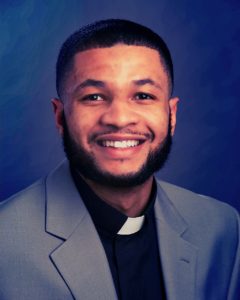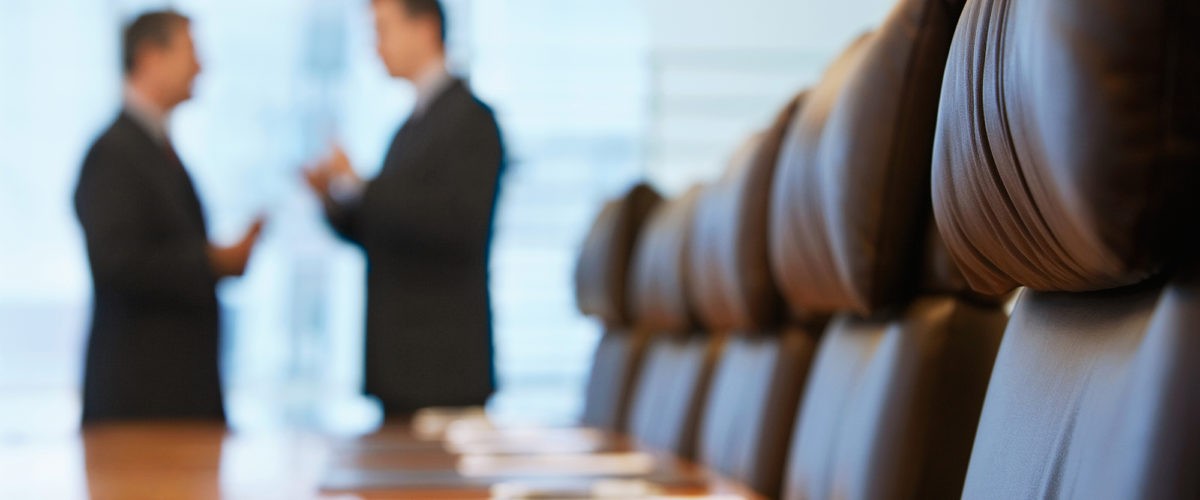In the summer of 2014, I served as a hospital chaplain placed at an 1,800-bed adult trauma level one and pediatric level three hospital in Park Ridge, Ill. I was the only African American full-time chaplain at this hospital, and I was working 65 to 80 hours a week. In addition, I was the only Protestant chaplain out of my group for the mission and spiritual care team, forcing me to have to work every weekend throughout that summer.
Throughout the duration of my time in this privileged position, I was not treated as one who would have possessed the same traits and qualities as the actual definition of privilege. I was working side by side with medical doctors, registered nurses, nurse practitioners, police officers, public safety officers and, of course, patients. Out of the numerous roles and occupancies that flourished within this large hospital, I was forced to reap all of the worries, pain and anxieties of all that went wrong on my shift. However, I never was allowed to share my own opinions of what I had seen and experienced during these intense times.

Louis Tillman
I was asked a penny for my thoughts, but when it was time for me to put my two cents in, I felt I had been robbed by persons of privilege. The majority of the privilege I felt was a pantomime of sorts, as was exuberantly demonstrated by the medical doctors and the police officers that worked at the hospital.
What I learned from age 11
As a young African American male, I never have had a positive encounter with the police, public officers or any forms of security in my life. I, like many African American males, have been the victim of police brutality, racial profiling, police injustice, wrongful accusations, and have been the recipient of police suspicion when they have clearly lacked probable cause. Thus, I had a difficult time working with public safety officers who did not show me the same level of respect as my other colleagues.
In the way of the protests and social unrest prompted by Michael Brown’s shooting in August 2014, I stand with the protesters and believe that when it comes to the justice system that there is “No justice and no peace.”
I wish I had better experiences with the justice system and the police. However, I cannot defend the justice system and police because of the experiences I have encountered.
At the age of 11, when I first encountered racial profiling, I gave up on the justice system within our country. At the hospital where I did my chaplaincy unit, I strived and persevered to have an equal and respectable professional working relationship, but my good intentions and deeds never were reciprocated.
“I was asked a penny for my thoughts, but when it was time for me to put my two cents in, I felt I had been robbed by persons of privilege.”
The measure of a person
Over the course of my chaplaincy, I acknowledged that my feelings and behaviors helped me deal with many of the experiences I encountered. The best way to measure a person is to see how tall he will stand when his world starts to fall apart. I can confidently and enthusiastically claim that after I experienced the disrespect during my summer as a chaplain, I was able to stand at the height of 6’4” because I was able to develop a “thick skin” where I would have to deal with any and all struggles that came my way in order to survive another day.
However, this breaks the spirit of Black men when we have to be silent and oppressed under the authority of the law for no reason but in order to stay out of harm’s way. Although I faced disrespect as an African American male, my faith in God helped me deal with the difficult realities of privilege and racism during my chaplaincy.
As a man of God, I saw that I was still able to maintain a collegial relationship with the public safety officers and the ER doctors. I was civil and sensed the presence of God throughout all my encounters with them. God was with all of us through this time because when one was harshly reacting negatively in times of distress, the other was listening and not reciprocating the hostility that was being shown unto them. God blessed me with the skillset of being levelheaded and calm through these moments of hostility.
However, not all victims of the privilege in our society are believers of a higher being such as God. Thus, they would need to find another way of coping with the pain and navigating systems of oppression. We as citizens of color within the United States of America have to live and deal within a country that is indoctrinated in the systemic issue of white privilege.
The table of privilege
In discussing what it is like to be a Black man in our society, I like to use the metaphor of the table of white privilege. In November 2014, I preached to my small Black congregation on the South Side of Chicago about the issues of privilege they face in society once they leave the church. I asked them to realize that there always has been a table where they never were allowed to sit. Then I invited them to sit at this table.
I explained that there’s this table where white power, privilege and supremacy always decide to convene their meetings about affecting change. This is the table where the white man tries to cut our governmental assistance, our equal employment opportunity, and increase our taxes on the middle class. This is the table where they not only cut but make it economically impossible and never feasible for persons of color to get LINK cards, WIC, or governmental assistance in their darkest times of need.
“There’s this table where white power, privilege and supremacy always decides to convene their meetings about affecting change.”
This is the same table where he convicts, indicts and prosecutes our young Black men to overpopulate the penitentiary systems in our country. This is the same table where they utilize methods like affirmative action to get our kids into schools on a sports scholarship, but never help them graduate with a degree —perpetuating the number of Black college dropouts.
This is the same table where our Black Lutheran churches are forced to shut their doors because they can’t find a trained, called pastor willing to serve in that area. This is the same table that closed down 51 Chicago public schools. This is the same table that cuts our Social Security checks and mistreats the senior citizens.
This is the same table where they chose to select a few Blacks to exploit them to the white population, so that we as the rest of the Black people in our own community will fight among one another to differentiate who is a House Negro and who is a Field Negro — when in this country it really doesn’t matter because we are all the same kind of Negro at the white man’s table!
An emotional response
This powerful moment in my sermon overwhelmed people from all generations in both a mood of anger and passion. They were overwhelmed with anger because they were hearing a minister actually speak to the real issues of the Southside neighborhoods. They were overwhelmed with passion because they were not all alone in this feeling. They were proud to see a strong young Black man articulating a voice for the voiceless in these situations.
“I never will forget the looks on the congregation’s faces.”
I never will forget the looks on the congregation’s faces. There was a look of anger and hopelessness. This was a look as if all of their hard work had gone down the drain.
As a minister proclaiming the gospel of Jesus, I knew I had the privilege and authority to bring the good news to the congregation as they felt hopeless living among a society that operates with an ideology of white privilege.
What will we do?
I had brought the realities of this ideology to their attention. But how would one do so when he is considered a poorly educated Negro facing the same exact issues as those who reside among his own community?
In this moment, an image was vividly painted in the mind’s eye of everyone in the congregation. The image was of the table of law and order that exists throughout their world. Although they know this table exists, they also know they never are allowed to sit at the table to voice their opinions and feelings. They see the paradox of institutionalized privilege as the disease for which it is: the harsh symptom called the paradigm of racism.
Facing this reality, we must answer essential questions:
- How does one learn, grow and develop efficiently and effectively within a toxic environment filled with racial privilege that is not conducive to the overall success of everyone in the community?
- How does someone have the courage and heart to sit at these tables and voice their opinions knowing that they are outnumbered and that they have a higher chance of being disregarded or led stray because of the amount of institutionalized white privilege that sits next to them?
- How does one gain and retain hope within these situations of oppression?
- How would one go about living and speaking at a table where one has considerably less social and political capital than their neighbors?
- How would a disinherited individual sit at this table and speak from the conviction of their souls in the uncomfortable conversation about social inequality, let alone addressing these grandiose issues of post-colonial enslavement?
- How do our educational systems change their rhetoric of egalitarianism of all students, when those in power are unwilling to change their Euro-centric-empowered curriculum plans and courses?
- How do we educate, demonstrate, and illustrate nonviolence in a war of social injustice, when we as people with our backs against the wall are forced to be submissive to the authority of white privilege and power that operates above the law?
- Is this disease, the paradigm of privilege and racism, ever eradicated simply when one of the underprivileged voices gets a seat at the table? Is that what progress looks like?
Finding a common table
In order for us to live, learn, speak and love as people with significant differences, we all must be willing to sit at the same common table and respect one another. We have to stop criticizing one another based on class, privilege or age but rather value each other based on the content of character and the meditations of the heart.
We never will advance as a people if we are still thinking in Colonial times. There is a method of egalitarianism that many people still believe exists today, but it never will be seen by the masses due to the paradox of institutionalized privilege that exists within our society today.
“People of color cannot be treated as slaves and as criminals by every officer with a badge and a gun.”
In the U.S. people of color cannot be treated as slaves and as criminals by every officer with a badge and a gun. Our judges need to show compassion and grant second chances to our first-time offenders, because, as study after study shows, systems of privilege that operate within the legal system disproportionately affect people of color.
When it comes to those with their backs against the wall, we as good Samaritans have to liberate them where we can, decriminalize them when necessary, and detoxify them if possible. But most important, we have to listen to them and provide opportunities for their leadership.
The ways of institutionalized privilege have birthed numerous forms of social injustice, such as institutionalized racism, classism, ageism, income inequality, bigotry, assimilation, and self-hatred. In order for we the people of the United States to reimagine our witness, it is about time to stand up and voice the levels of injustice that are going on within our respective social locations or to address them head on because our voices have gone long enough without being heard.
Louis R. Tillman IV serves as senior pastor at St. Philip’s Evangelical Lutheran Church in Baltimore, the oldest African American Lutheran Church in North America. He is a graduate of Carthage College, the Lutheran School of Theology at Chicago, and Air University. He is a board-certified chaplain accredited through the National Association of Veterans Affairs Chaplains and at the time of his ordination was the youngest African American ordained in the Evangelical Lutheran Church in America.


